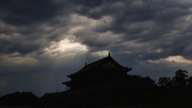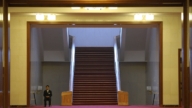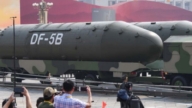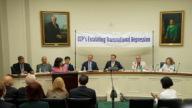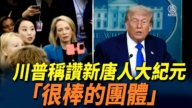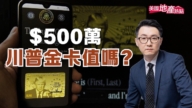【新唐人2013年04月10日讯】在中国,所谓的“情妇经济”因为近来中共当局的反腐动作,而受到影响,其中包括中共官员情妇包住的高档公寓出现空置;名表、包包及服装等名牌奢侈品的生意也大大锐减。但是,大陆媒体认为,反腐政策并不是中国奢侈品市场销售成绩减弱的主要原因。是这样吗﹖请跟本台记者一起去了解。
中国大陆奢侈品的好日子正在受到冲击。大陆媒体报导,去年(2012年)10月《机关事务管理条例》正式实施,其中明确规定:禁止政府采购奢侈品;接着,11月十八大召开,新领导人亮相,他们显然意识到贫富悬殊、官员腐败等涉及民生问题的重要性,反腐力度不断加大,奢侈品公司感觉压力变大。
而英国《泰晤士报》则报导说,中共反腐风暴令“情妇经济”崩溃,官员情妇包住的高档公寓出现空置﹔名表、包包及服装等名牌奢侈品,生意大减。
以2007年开业的北京“新光天地”商场举例来说,“新光天地”每年以30%至50%的比率增长,并在2011年超过“杭州大厦”,成为中国销售额最高的百货商店。但反腐政策实施之后,去年,“新光天地”增长率下降到2.3%,商场销售额位列第三的GUCCI名店,今年元旦之后,月销售额平均下跌30%左右。
不过,美国“南卡罗莱纳大学”艾肯商学院教授谢田认为,中国国内的奢侈品市场低迷,只是暂时性的掩人耳目,贪官情妇已经形成奢侈的生活习性,他们有可能出国采购或者推迟购买。
美国南卡罗莱纳大学艾肯商学院教授谢田:“因为上面开始吹风,所谓打击贪腐,下面自然有所收敛。但是新官上任三把火也好,这些口号每批官员上台都会做,每次都会高唱反腐的口号,但是不会持久,很快官员购买奢侈品可能会稍收敛一下,可能半年以后风头过后,他们会依然故我,还是继续浮华、享受。”
中国人民大学早前的一项研究指出,中国大陆被立案调查的腐败官员,60%都有全职情妇。官员们为供养和讨好这些情妇,给她们购房、租房,还为她们购买名车、名表、名服装等奢侈品,出现所谓的“情妇经济”,这些馈赠支出,远超过官员的收入。
而“汇丰银行”早前也曾经发布对中国奢侈品行业的研究报告,报告说,中国二奶的高端消费速度和数量确实很可观。但报告警告,如果当局出手反腐败,官员包二奶情况收敛的话,奢侈品在中国市场的销售很可能会受到影响。
可是,大陆媒体指称,反腐政策并不是中国奢侈品市场销售减弱的主要原因,迅速变化的消费者行为和市场才是。
北京《国情内参》首席研究员巩胜利:“不仅高档奢侈品,很简单的北京的餐馆业,数据出来比往前减少60%以上。如果中国长期以往靠官员消费来拉动,不是个好现象,任何一个法治健全的国家都不可能出现这个现象。靠官场拉动的经济是非常危险的,如果继续走下去的话,中国经济的灾难很快都到来。”
报导分析,奢侈品实体店面的业绩下滑,不能代表反腐成效,因为购买奢侈品的通路选择性很多,其中包括海外 消费和网路代购等等。而北京的二奶们,在风声鹤唳下,也只能悄悄的“化明为暗”避避锋头。
据了解,近二十年来,大陆的副省级以上落马高官,大多数是被政敌和情妇举报,真正属于中共党内权力监督部门主动出击查处的案例非常少。
采访/田净 编辑/黄亿美 后制/郭敬
Mistress Economy VS Anti-Corruption
In China, the Chinese Communist Party’s (CCP) recent anti-corruption moves have affected the so-called “Mistress Economy.” More luxury apartments appear vacant; brand name business, watches, purses, and clothing, has sharply declined. However, Mainland media say the anti-corruption policy has little to do with performance of the Chinese luxury goods market. Is that true? Please read our report.
The good old days of luxury goods in China is being challenged. Mainland media reported that the Chinese regime clearly ordered the prohibition of government procurement of luxury goods in October 2012. During the 18th Congress, the new leaders recognized disparity between the rich and the poor. And that official corruption is affecting people’s livelihood.
Thus, anti-corruption efforts continue to be stepped up. The more official efforts to curb corruption, the more the pressure falls on luxury goods companies. British Times reported that the CCP’s anti-corruption storm has caused the mistress economy to collapse. More upscale apartments are vacant and the business of luxury watches, bags, and clothing is sharply declining. For example, Beijing’s Shin Guang shopping mall has had an annual growth rate of 30-50% since it opened in 2007. In 2011, it surpassed the Hangzhou Tower and became the number one shopping mall in China.
However, after the implementation of the anti-corruption policy last year, Shin Guang’s growth rate has dropped to 2.3%. Gucci Shop ranks 3rd in sales in Shin Guang mall; its monthly sales fell by an average of 30% since January 2013. However, Professor Xie Tian, from University of South Carolina Aiken Business School commented. He says the downturn of the luxury goods market is only temporary deceiving the public. Those mistresses are so used to luxury lives that they can buy luxury goods abroad or delay their purchase. Prof. Xie Tian: “Because anti-corruption is in the air, officials will show restraint now.
New leaders coming to power like to display anti-corruption slogans, which will not last very long—about six months. Half a year later, officials will resume their luxury lifestyle and continue to enjoy their good lives. An earlier study from the Renmin University of China pointed out that 60% of corrupt officials under investigation had a full-time mistress. Officials provided housing, cars, watches, name brand clothing and other luxury goods for their mistresses. Thus, the “mistress economy” was formed.
These luxury gifts for a mistress cost far more than the regular income of an official. Earlier, HSBC also released a research report on China’s luxury goods industry.
The report said China mistresses’ speed and quantity of consuming luxury goods were really impressive. The report also warned that if officials show any restraint in their mistress situations, luxury goods sales will likely be affected. However, Mainland media claimed that the weakened luxury goods market isn’t caused by the anti-corruption policy but by the changes of consumer behavior and the market. Gong Shengli, a principal researcher at National Conditions and Internal Reference: “(It’s) not only the high-end luxury goods, the simple restaurant industry in Beijing also shows a 60% reduction. If China’s economy depends on officials’ consumption, it is not a good sign. This scenario cannot happen in any sound rule-of-law country. Relying on officials to push the economy in this fashion is very dangerous. If this continues, China’s economic disaster will soon be here.”
According to analysis, the decline in sales of luxury goods does not indicate the success of the anti-corruption efforts, because there are many pathways to buy luxury goods, including overseas and Internet purchasing. Mistresses in Beijing are in panic, and they can hide and be quiet for the time being.
It is understood that, in the past two decades, the downfall of most high-ranking officials was caused by the work of political opponents or mistresses. Very few cases resulted from declined efforts by the CCP’s internal supervision departments.







